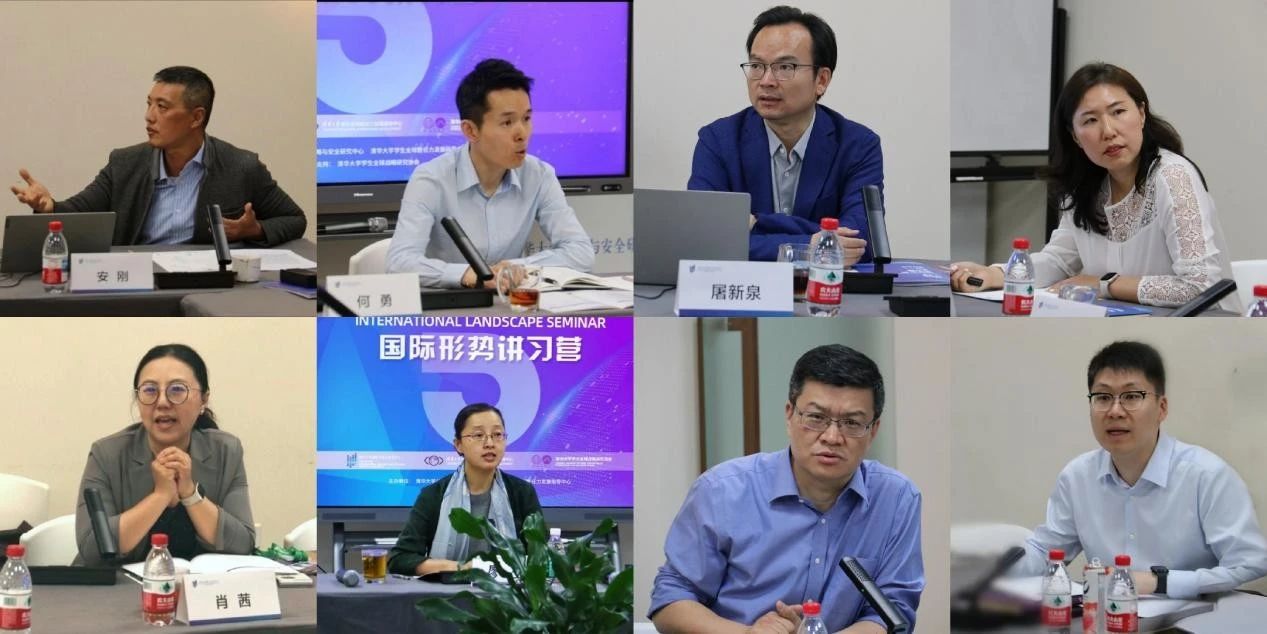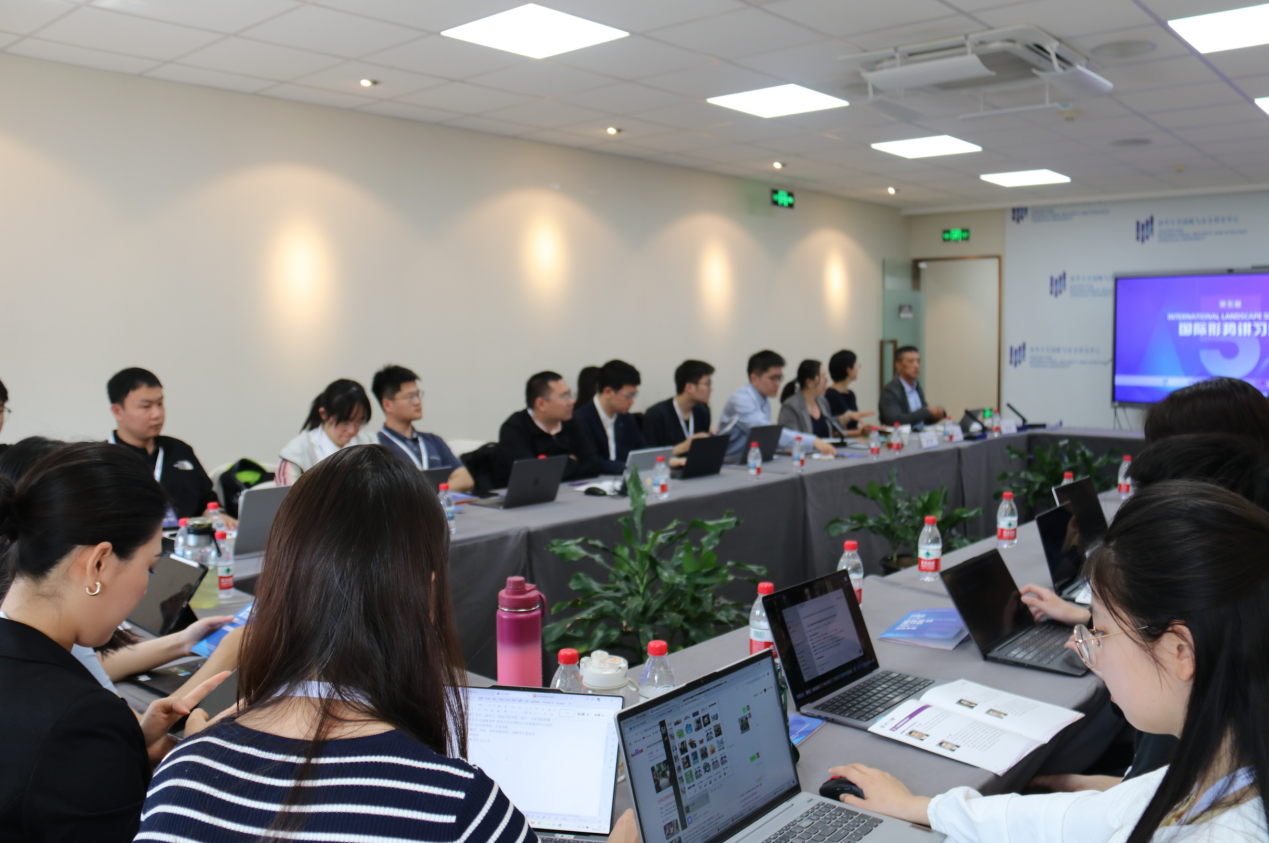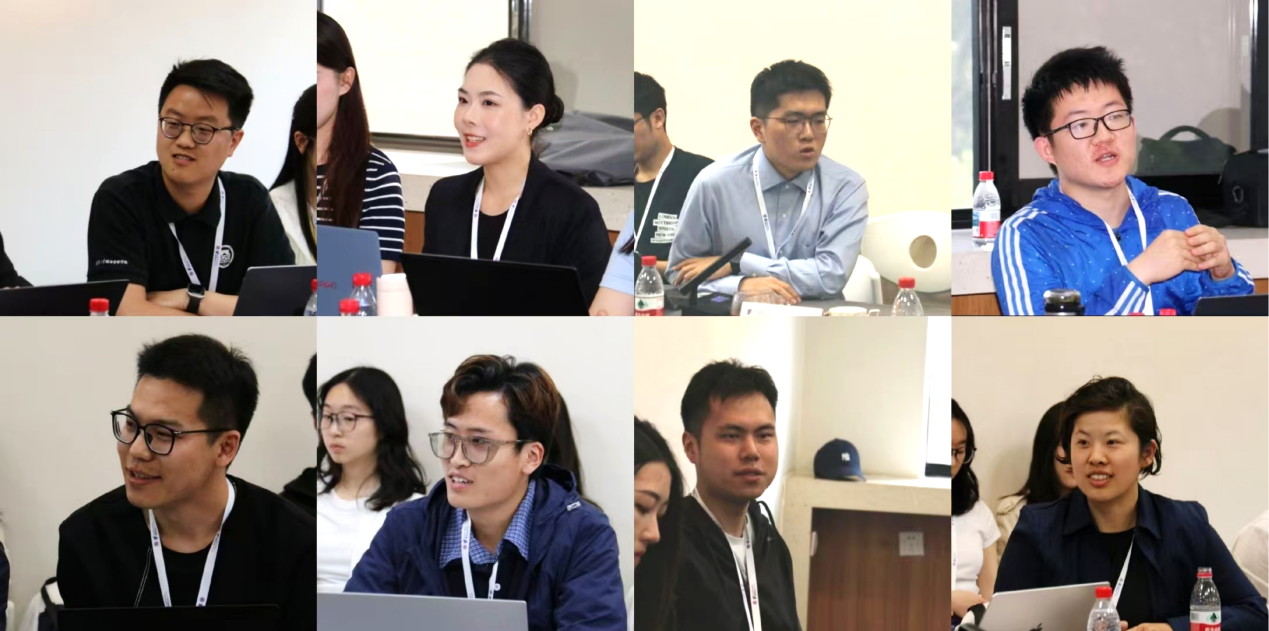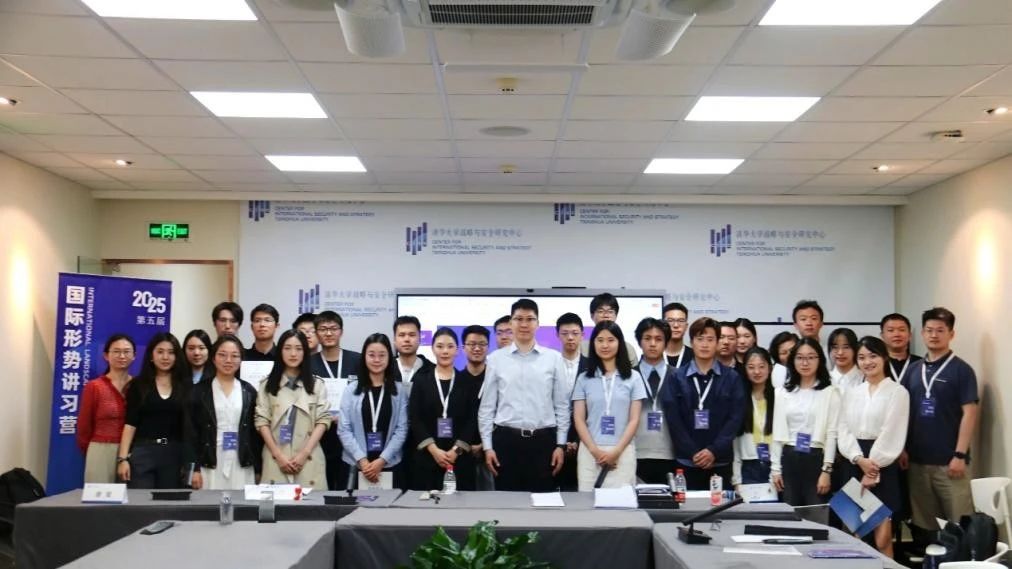On May 25, 2025, the 5th International Affairs Workshop was successfully held, co-hosted by the Center for International Security and Strategy (CISS) at Tsinghua University and the Center for Global Competence Development (CGCD) for Tsinghua Students. Aimed at university students across China, the workshop is designed to help aspiring young professionals in international relations, diplomacy, and strategic planning cultivate strategic thinking, deepen their understanding of global affairs, and develop the skills to tell China’s story effectively in future academic and professional pursuits. This year’s workshop welcomed 27 students from institutions such as Tsinghua University, Renmin University of China, the Central Party School, and the University of International Relations. The Student Association for International Strategy Studies (SAISS) at Tsinghua also assisted in organizing the event.

The opening ceremony was hosted by Xiao Xi, Deputy Director of CISS and Director of the Office of International Cooperation and Exchange at Tsinghua University. In her welcoming remarks, Xiao Xi emphasized CISS’s role not only as a think tank but also in talent cultivation. She highlighted that in an era marked by profound changes unseen in a century and major power realignment, understanding the shifting global landscape is essential. She encouraged students to embrace the responsibilities of the times—to not only observe global trends but also reflect on the roles and contributions of Chinese youth on the world stage, making meaningful contributions to the building of a global community of shared future. She urged participants to treasure this learning opportunity, support one another, and strive for mutual growth.
He Yong, Deputy Director of the Department of North American and Oceanian Affairs at China’s Ministry of Foreign Affairs, delivered a talk titled “Current China-U.S. Relations and Our Response.” He reviewed the historical trajectory and current status of China-U.S. relations, underscoring China’s stable and consistent policy approach. He emphasized China’s commitment to the principles of mutual respect, peaceful coexistence, and win-win cooperation proposed by President Xi Jinping, and the importance of engaging the U.S. on an equal and reciprocal basis to promote stable, healthy, and sustainable bilateral ties, while resolutely safeguarding national sovereignty, security, and development interests.
CISS Special Advisor An Gang delivered a keynote speech on “China-U.S. Relations After the Geneva Consensus: Searching for the Underlying Logic.” He revisited the Trump administration’s “reciprocal tariff policy,” analyzing the strategic motives behind the U.S. push for global economic "de-Sinicization" through trade, debt, currency, and market restructuring. An Gang argued that current China-U.S. relations are in a crucial post-Geneva phase—offering opportunities to restore stability and cooperation, but also marked by growing complexity and competition. He emphasized the need for China to safeguard its interests and dignity while managing China-U.S. relations globally, and to proactively develop its capacity to lead global governance and promote multipolarity.

Professor Tu Xinquan, Dean of the China Institute for WTO Studies at the University of International Business and Economics, delivered a lecture titled “U.S.-China Trade and Tech War: Causes and Consequences.” He analyzed the global context of the rivalry, highlighted key economic and political developments since the 2008 global financial crisis, and examined shifts in U.S. trade policy and the current challenges facing major global economies. His insights provided students with a multidimensional understanding of the U.S.-China trade competition.
Li Pei Zhang, Vice President of the U.S.-China Business Council, delivered a talk titled “Challenges and Opportunities: A Brief Analysis of the Business Environment Amid U.S.-China Trade Friction.” She introduced the USCBC’s history and mission, analyzed ten major concerns of multinational enterprises and current tariff-related issues, and discussed new opportunities emerging during this period of uncertainty. She also shared the USCBC’s “Adapt, Connect, Influence” approach and responded to students’ questions on topics such as beginning a career in international relations and the development of AI industries in both countries.

A highlight of the workshop was the innovative “role-play discussion” segment, moderated and commented on by Xiao Yuanrui, lecturer at the CGCD. Participants represented China, the U.S., the EU, U.S. allies in the Asia-Pacific, and emerging developing countries, and debated the motives, policies, concerns, and future plans surrounding a new round of “trade war,” engaging in lively exchanges on tariff barriers and tech restrictions.
At the closing ceremony, Da Wei, Director of the Center for International Security and Strategy (CISS), spoke on behalf of the organizers to share the original vision behind the design of the camp curriculum. He emphasized that the camp aims to inspire young students’ interest in international affairs, cultivate a global perspective, and encourage them to think about how to contribute from China’s standpoint on the international stage—enhancing the country’s voice in global discourse and contributing to its development and openness to the world.
Liao Ying, Director of the Tsinghua University Center for Global Competence Development, delivered the concluding remarks. She expressed hope that students would develop the habit of deep thinking, adopt diverse perspectives to understand international issues, and apply their knowledge and reflections to support China’s high-quality development and high-level opening-up.
Participants also shared their personal reflections and learning outcomes, expressing that they had greatly benefited from the program and were eager to participate in future academic activities organized by the two centers.

